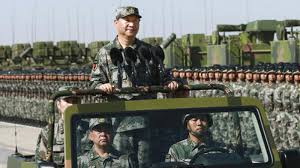An official document revealed on Wednesday that China had reversed a pledge not to send troops or administrators to Taiwan if it were to seize control of the island, suggesting President Xi Jinping had decided to allow less autonomy than had been promised.
Following days of unprecedented military drills close to the island, which Beijing claims as part of its territory, China released a white paper outlining its position on self-governing Taiwan in response to U.S. House Speaker Nancy Pelosi’s visit last week.
After accomplishing what Beijing refers to as “reunification,” China has stated in two prior white papers on Taiwan, published in 1993 and 2000, that it “would not send soldiers or administrative officials to be based in Taiwan.”
This clause, which was supposed to guarantee Taiwan’s autonomy after joining China as a special administrative zone, was absent from the most recent white paper.
According to a “one country, two systems” plan put forth by China’s ruling Communist Party, Taiwan might rejoin China under Chinese control in the same way that Hong Kong, a former British colony, did in 1997.
That would give democratically-ruled Taiwan some autonomy so that its social and political systems might be preserved in part.
According to opinion polls, the “one country, two systems” proposition has been rejected by all major political parties in Taiwan and has almost no public support. Only the residents of the island, according to Taiwan’s government, can decide their future.
The most recent white paper also omits a clause from the one from 2000 that stated that “everything can be negotiated” as long as Taiwan understands that there is only one China and does not pursue independence.
The white paper was denounced by Taiwan’s Mainland Affairs Council, which said that Taiwan’s official name, the Republic of China, was a sovereign state and that it was “full of lies, wishful thinking, and disregarded the facts.”
Only Taiwan’s 23 million citizens have the authority to determine Taiwan’s future, and they will never consent to a decision made by an autocratic government.
“The Taiwan Question and China’s Reunification in the New Era” is the title of the new white paper. The phrase “new era” is frequently used to describe Xi’s rule. At the Communist Party congress later this year, Xi is anticipated to win a third term.
Since 1949, when the defeated Republic of China government retreated to the island after Mao Zedong’s Communist Party won a civil war, Taiwan has been threatened by a Chinese invasion.

















